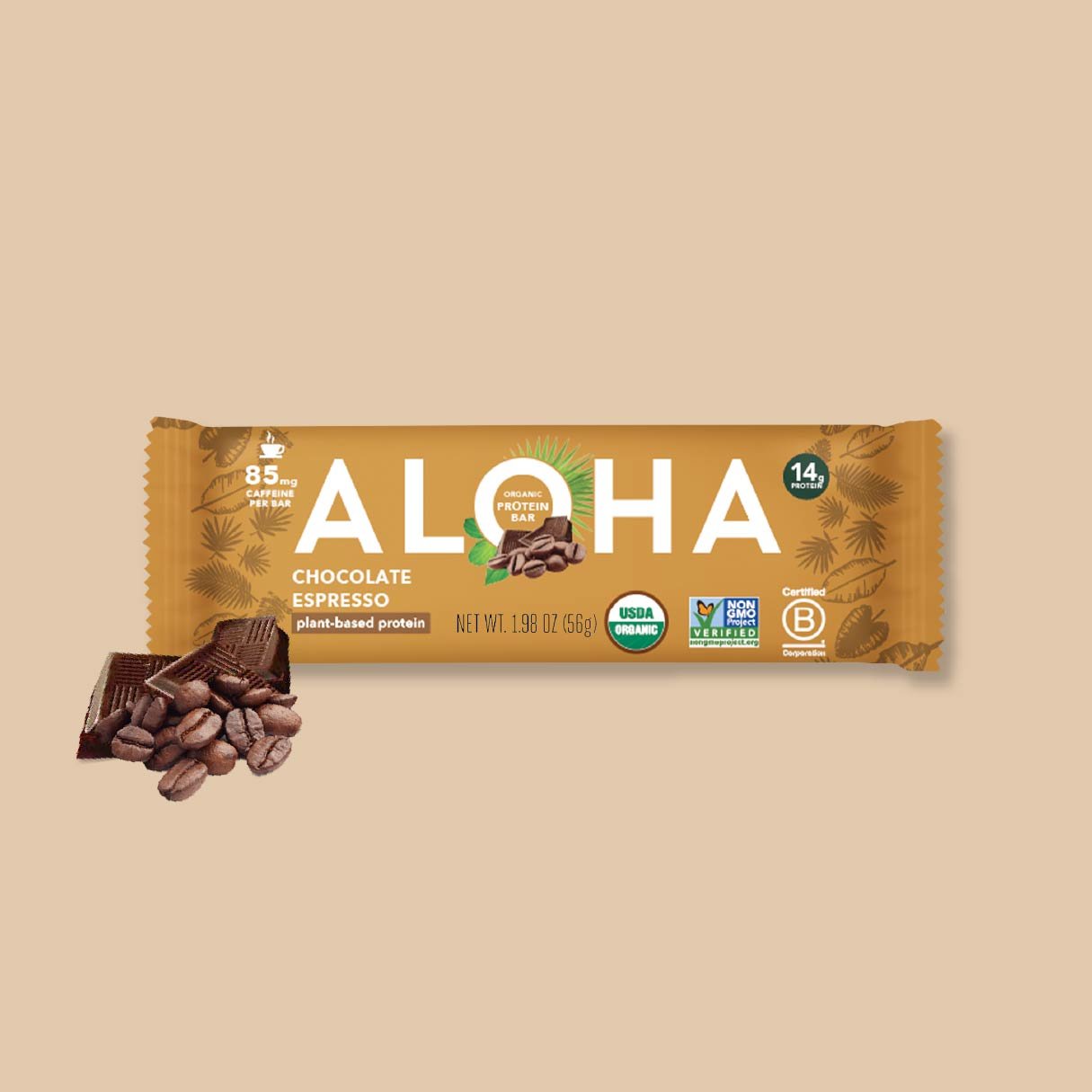by Jake Luttrell, Team ALOHA, avid caffeine consumer
We all know that drinking coffee can give us a quick boost of energy, but what about eating caffeine? Eating caffeine is becoming increasingly popular as people are looking for healthier alternatives to their morning cup of joe. With ALOHA’s new Espresso + Caffeine Protein Bar containing 100mg of caffeine, we’re jonesing to let the world in on the trend.

Eating caffeine can provide a slow release of energy throughout the day, and it can also help reduce sugar cravings. Coffee protein bars, espresso protein bars, and plant-based proteins are some popular ways to get your daily dose of caffeine without the sugar rush.
This article examines the difference between eating and drinking caffeine, as well as some tips for finding the right way to get your daily dose. We will look at how both methods can benefit your health in different ways, and discuss which one might be better for you depending on your lifestyle.
How does eating caffeine and caffeinated products affect the body?
Caffeine is absorbed through the small intestine and then enters the bloodstream where it travels to various organs and tissues throughout the body. The rate of absorption depends on several factors such as age, gender, body weight, and other medications taken at the same time. Once in the bloodstream, caffeine binds to receptors in our brain which can lead to increased alertness and focus.
Eating caffeine has been shown to increase its absorption rate, as it takes longer for the body to break down food than it does for liquids. This means that eating foods or snacks containing caffeine can provide a more sustained release of energy, providing a longer-lasting energy boost than drinking coffee or energy drinks. Additionally, eating foods with caffeine may reduce the risk of experiencing side effects such as jitters or headaches associated with drinking caffeine. Eating caffeine can help reduce fatigue and improve mood in a more gradual way than drinking your average caffeinated beverage.
How does drinking Caffeine and caffeinated products affect the body?

Drinking caffeine can provide a quick boost of energy, but it also depends on how quickly it is consumed. Coffee and energy drinks are known to be absorbed quicker than tea or other beverages, and may cause anxiety or jitters. This is because caffeine stimulates the central nervous system and increases heart rate and blood pressure. As a result, people who consume too much caffeine may experience feelings of restlessness, nervousness, or irritability. In extreme cases, it can even lead to panic attacks or insomnia.
Caffeine works by increasing the activity of neurotransmitters in the brain, such as norepinephrine. This neurotransmitter is responsible for alertness and arousal, so that anxiety comes from the overstimulation of these neurotransmitters. Caffeine also affects other hormone levels in the body, such as cortisol and adrenaline, which can further contribute to feelings of stress and anxiety.
What caffeinated products are good for you?
Not all caffeinated products are created equal – some offer more nutritional value than others. Eating caffeinated products that are high in sugar or fat can be especially bad for you, as they can lead to weight gain and other health problems. These bad actors mixed with slow-release caffeine may be an uncomfortable feeling, so the team at ALOHA recommends only the most nutritional and balanced caffeinated products to eat. Our plant-based Espresso + Caffeine Protein bars are made with natural ingredients which provide essential vitamins and minerals. Plus, they contain no added sugar or artificial sweeteners. This makes them an ideal snack for those looking to maintain a healthy lifestyle while eating caffeine!










